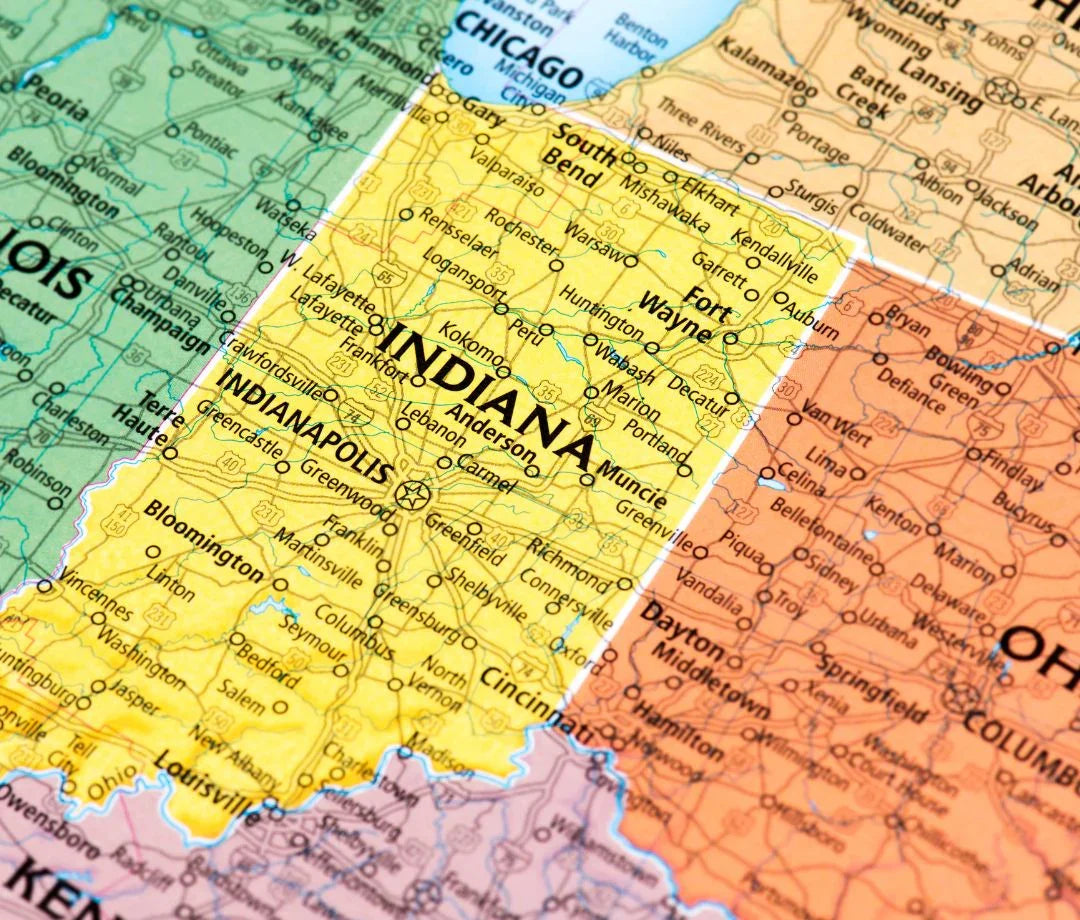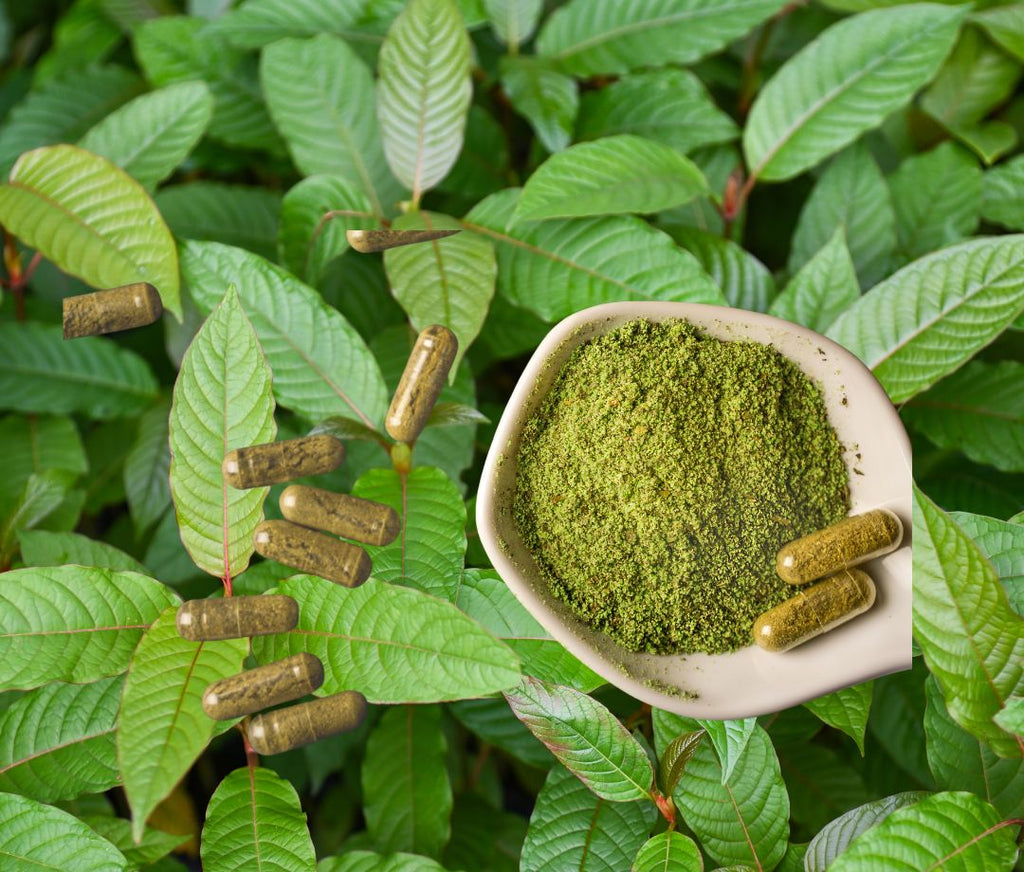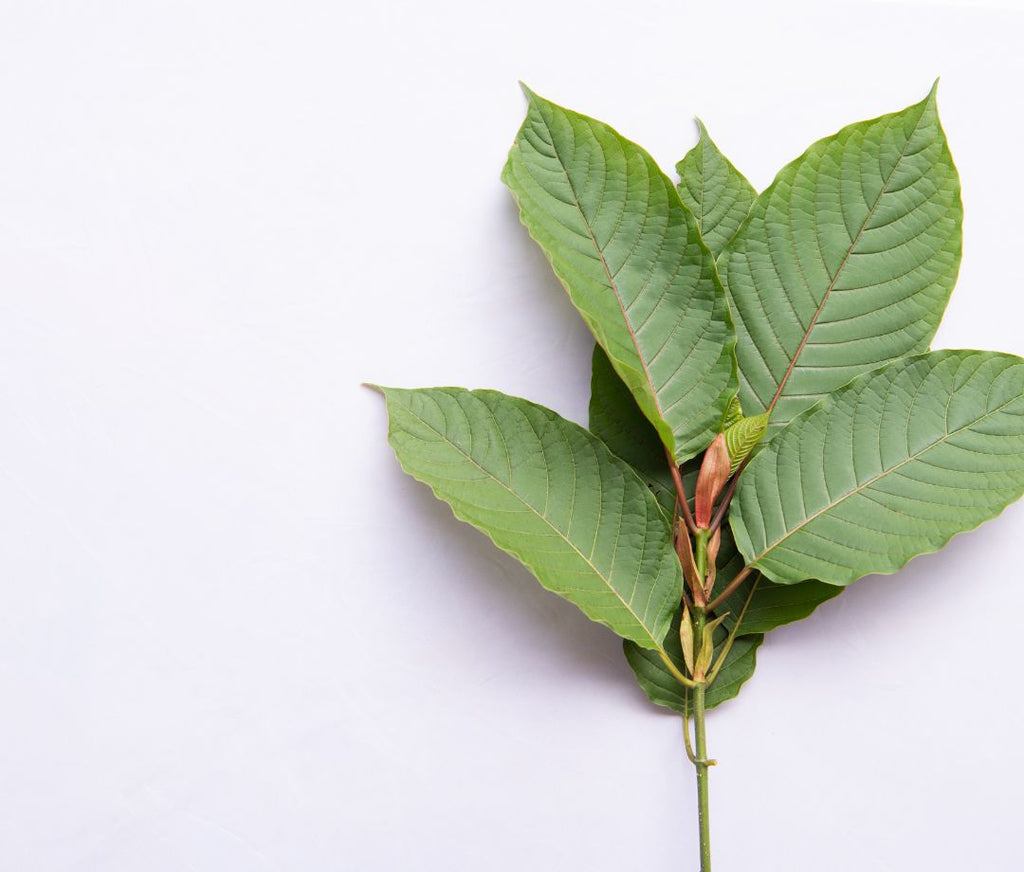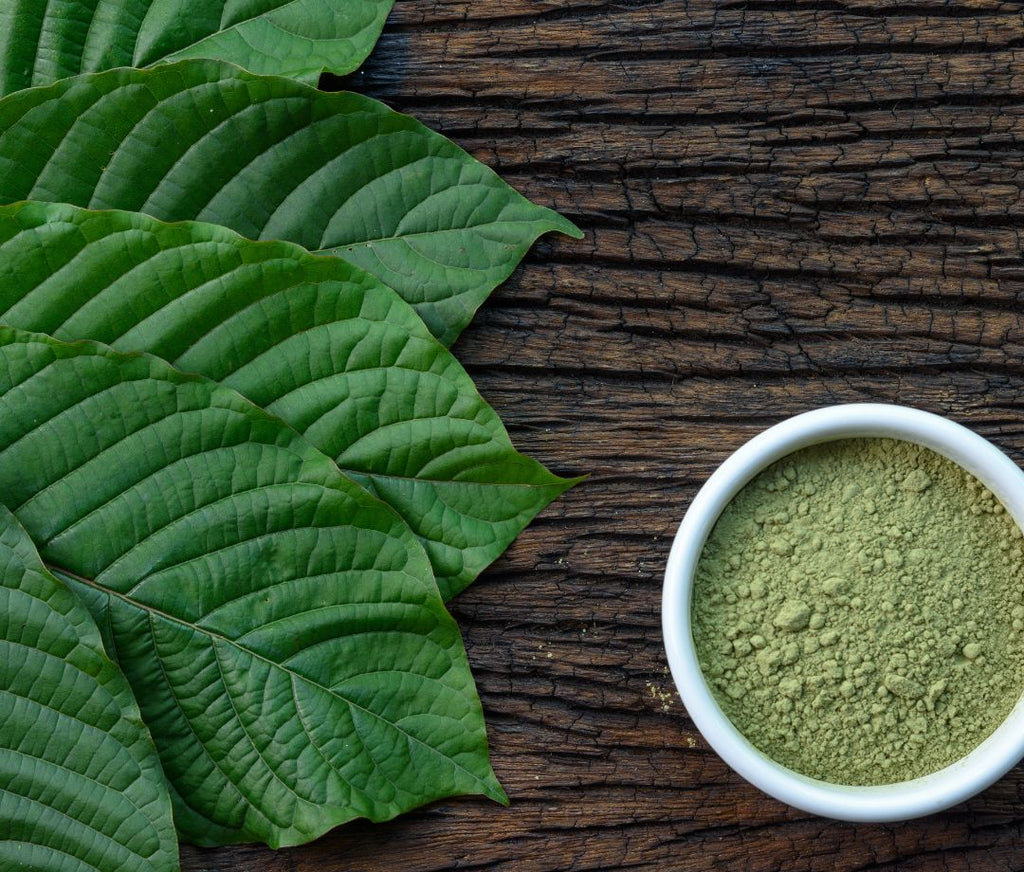
Is Kratom Legal in Indiana? Full Facts
Explore Kratom's legality in Indiana, its forms, and the ongoing debate. Stay informed on laws and advocacy efforts for change.
Kratom, an herbal compound, has been suggested by some as a potential opioid alternative. Originating from Southeast Asia, the consumption of the kratom plant dates back to the 19th century, where it was traditionally chewed in its fresh or dried form, or brewed as tea.
It was popular among workers who believed it helped extend their working hours and reduce fatigue.

Recently, the global community, including the World Health Organization (WHO), has started to pay closer attention to kratom, with the possibility of forthcoming conclusions regarding its health implications. Presently, kratom is prohibited in six states
- Arkansas
- Alabama
- Indiana
- Rhode Island
- Vermont
- Wisconsin
- Washington D.C
However, some states like Arizona and Utah have enacted specific regulations governing its use. Kratom might also be found in the market labeled as thang, kakuam, thom, ketum, or biak.
Is Kratom Legal in Indiana?
Kratom is illegal in Indiana. The state classified it and its key alkaloids, mitragynine and 7-hydroxymitragynine, as controlled substances in 2012. Indiana's legislation, specifically through Senate Bill 305, prohibits the possession, sale, and distribution of Kratom. This action reflects concerns over the substance's safety and potential for abuse.
Despite advocacy efforts to overturn the ban, citing Kratom's potential benefits for pain management and addiction recovery, Kratom remains a Schedule I controlled substance in Indiana, deemed to have a high potential for abuse with no accepted medical use. Residents and visitors should thus be mindful of the state's legal restrictions regarding Kratom.
Is Kratom Considered as a Synthetic Substance in Indiana?
The classification of Kratom as a synthetic substance in Indiana may have originated from confusion during the synthetic drug "spice" craze. Lawmakers, mistaking Kratom's natural alkaloids for synthetic ones found in drugs like K2, possibly led to its erroneous categorization.
Although some discussions hinted at a reclassification of Kratom as a “Schedule I Hallucinogenic Substance” in 2018, such a change remains unverified. Currently, Indiana's legal code still lists Kratom’s alkaloids, mitragynine, and 7-hydroxymitragynine, as synthetic substances, despite their natural occurrence in Mitragyna speciosa tree leaves.
This classification overlooks the fact that these alkaloids are as naturally produced as caffeine in coffee plants. The dialogue surrounding House Bill 1500 reflects efforts to reevaluate and potentially correct Kratom's legal status in Indiana.
House Bill 1500 Introduced to Legalize Kratom in Indiana in 2023
In 2023, Indiana saw several legislative attempts to decriminalize substances that are presently banned within the state. Among these, House Bill 1500, aimed at legalizing Kratom, was the sole proposal to gain traction.
By the end of February, this bill successfully passed the House of Representatives with a vote of 53-40 and was subsequently forwarded to the Senate Committee on Commerce and Technology for further consideration. However, the committee did not proceed with any actions regarding the bill.
Shipping Kratom Products to and From Indiana
Even though Kratom is a popular choice for many, the million dollar question: “Is Kratom legal?” still holds great importance. The transportation of Kratom products into or out of Indiana is fraught with legal challenges, primarily due to the state's classification of Kratom as an illegal substance. This legal status prohibits the shipping of Kratom to Indiana addresses, with carriers typically refusing to transport such items in accordance with federal and state regulations.

Individuals or businesses attempting to ship Kratom into the state may face legal repercussions, including criminal charges. Moreover, packages containing Kratom are at risk of being intercepted and seized by law enforcement, adding a layer of complexity and risk to any attempt to distribute or receive Kratom products in Indiana.
Types of Kratom found in Indiana
In areas where Kratom is legal, it is commonly available in several forms, catering to various preferences for consumption. Though Kratom remains illegal in Indiana, understanding the types of Kratom products that exist can provide insight into its versatility and how it is used elsewhere. The two primary forms of Kratom available in markets where its sale is permitted include Kratom capsules and Kratom powder:
-
Kratom Capsules: These are gelatin or vegetarian capsules filled with Kratom powder. Capsules are favored by those seeking convenience and precise dosing, as each capsule contains a measured amount of Kratom powder.This form eliminates the need for weighing scales and can be more discreet, making it easier for users to take Kratom on the go. Capsules also bypass the bitter taste of Kratom powder, which some find unpleasant.
- Kratom Powder: The most traditional form of Kratom, the powder is made by drying and grinding the leaves of the Mitragyna speciosa tree. Kratom powder offers versatility in consumption methods; it can be used to brew tea, mixed into beverages or foods, or taken directly by the "toss and wash" method, where the powder is placed in the mouth and washed down with water. Users favor powder for its flexibility in adjusting dosages and for economic reasons, as it often comes at a lower cost compared to other forms.

|
Feature |
Kratom Capsules |
Kratom Powder |
|
Form |
Encapsulated powder |
Loose, fine powder |
|
Convenience |
High (pre-measured, easy to consume) |
Lower (requires measurement and preparation) |
|
Taste |
Neutral (capsule masks the taste) |
Bitter (direct taste of Kratom) |
|
Versatility |
Fixed dosage, limited usage options |
Highly versatile (can be used in various ways) |
|
Cost |
Generally higher due to packaging |
Lower, more economical |
|
Discreteness |
More discreet, easier for on-the-go use |
Less discreet, requires preparation |
|
Adjustability |
Fixed dosage, less flexibility |
Flexible, easy to adjust dosage |
Things to Consider When Buying Kratom in Indiana
Purchasing Kratom in Indiana is highly problematic from a legal standpoint. The state's ban on Kratom encompasses the sale, possession, and use of the substance, effectively eliminating the legal market for it within state borders. Residents should be cautious of the severe legal implications that can arise from attempting to buy or possess Kratom in Indiana.
Online purchases also present significant risks, as the act of shipping Kratom to Indiana could result in legal actions against both the buyer and the seller. Given these circumstances, individuals in Indiana interested in Kratom must carefully consider the legal consequences and the scarcity of legitimate sources due to the state's stringent regulations.
Guidelines For Responsible Use of Kratom In Indiana
Given Indiana's legal stance on Kratom, providing guidelines for its responsible use within the state presents a unique challenge, as the substance is classified as illegal. This means that any use, possession, sale, or distribution of Kratom is against state law, and individuals found engaging in these activities could face legal consequences.
The primary guideline for residents and visitors in Indiana, therefore, is to abide by state laws, which currently prohibit Kratom. Engaging with Kratom in any form within state boundaries can lead to significant legal risks, including fines and potential criminal charges.
For those outside Indiana where Kratom may be legal, or if the laws were to change in the future, responsible use guidelines typically emphasize safety and moderation. However, it's important to reiterate that as of the current legal framework in Indiana, the following guidelines apply:
- Abide by State Laws: Understand and comply with Indiana’s regulations regarding Kratom.
- Stay Informed: Keep updated on any legal changes concerning Kratom in Indiana.
- Legal Alternatives: Consider legal alternatives for the intended use of Kratom, consulting healthcare providers as necessary.
Until there is a change in legislation, the guidelines for Kratom in Indiana strictly involve adherence to existing laws, emphasizing the importance of legal compliance and safety.
Why is Kratom Popular in Indiana?
Kratom's popularity in Indiana, despite its legal status, can be attributed to its purported benefits and the broader national interest in alternative wellness and pain management solutions.
The natural origins of Kratom, derived from the leaves of the Mitragyna speciosa tree found in Southeast Asia, appeal to those seeking more holistic approaches to health and well-being.
Moreover, the growing discourse around Kratom, fueled by both anecdotal evidence and emerging research, has piqued the curiosity of many seeking alternatives to conventional medicine. Despite its prohibition, the substance's reputation for providing therapeutic benefits continues to attract attention within Indiana.
The state's residents, alongside advocacy groups, are increasingly vocal about reconsidering Kratom's legal status, reflecting a broader trend towards reevaluating the potential medicinal value of natural substances.
Legal Status of Kratom in Indiana: Possibilities for 2024?
Kratom's legal status in Indiana is unlikely to change unless there's a concerted legal push towards its legalization. Despite the introduction of a bill in 2023 aimed at legalizing Kratom, which ultimately did not pass, the future still holds the potential for change. The road to legalization, however, is fraught with challenges.
For residents of Indiana eager to see Kratom legalized, proactive engagement with state representatives is crucial. By sharing personal experiences and highlighting the positive impacts of Kratom regulation, individuals can contribute to the movement.
Furthermore, joining forces with the American Kratom Association’s Indiana Kratom Protectors Group amplifies this effort. Spreading the word among acquaintances and through social media platforms can also bolster the cause.
The Bottom Line
In conclusion, the legal status of Kratom in Indiana remains clear and unchanged: it is classified as an illegal substance across the state. Despite the ongoing debate and efforts by advocacy groups to change its classification, Kratom, in all its forms—whether capsules, powder, or any other—cannot be legally possessed, sold, or used within the state's boundaries.
The comparison of Kratom capsules and powder highlights the versatility and appeal of this substance among its users elsewhere, underscoring the complexity of the discussion surrounding its benefits and legal status.
As the conversation and legal landscape continue to evolve, it's crucial for residents of Indiana and those interested in Kratom to stay informed about legislative changes and to participate in the dialogue through informed and responsible advocacy.
Kratom Legality in Indiana- FAQs
1. What are the penalties for possessing kratom in Indiana?
Possession of kratom in Indiana could lead to criminal charges, including fines and imprisonment, similar to penalties for other Schedule I substances.
2. Are there efforts to change the legal status of kratom in Indiana?
There have been discussions and advocacy efforts aimed at reevaluating the legal status of kratom at both the state and federal levels, but as of my last update, the law in Indiana remains unchanged.
3. Can I travel through Indiana with kratom?
Traveling with kratom through Indiana could result in legal complications due to its illegal status, even if it's legal in both the origin and destination states.
4. How does Indiana's stance on kratom compare to other states?
While kratom is illegal in Indiana and a few other states, it remains legal and regulated in several states, highlighting a lack of uniformity in kratom legislation across the United States.
5. Is there any medical use of kratom recognized in Indiana?
No, Indiana law does not recognize any medical use for kratom, and it is classified purely as a Schedule I controlled substance without accepted medical use.
6. How does the federal DEA classification of kratom affect its status in Indiana?
Although the DEA has not classified kratom as a controlled substance on the federal level, Indiana's decision to ban kratom stands independently based on state law.
Share

